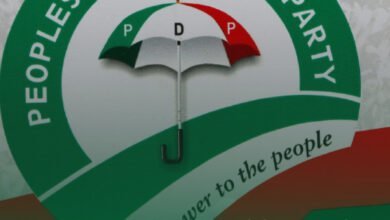War on Oil Theft: Can a State of Emergency Address Nigeria’s Fluctuating Oil Production?

In a bold move, the Nigerian National Petroleum Company Limited (NNPCL) declared a state of emergency on July 2nd, 2024, aiming to tackle Nigeria’s dwindling oil production.
Mele Kyari, the Group CEO, outlined a multi-pronged approach during his address at the ongoing Nigeria Oil and Gas (NOG) Energy Week.
Mr. Kyari stated that the move aims to boost Nigeria’s crude oil production and expand its reserves.
“We have decided to stop the debate. We have declared war on the challenges affecting our crude oil production.” Mr. Kyari was quoted as saying, “War means war. We have the right tools. We know what to fight for. We know what we have to do at the level of assets. We have engaged our partners. And we will work together to improve the situation,” he said.
Dwindled production
Nigeria’s oil production dropped spectacularly by 6% in March 2024, according to the Organization of Petroleum Exporting Countries (OPEC). Compared to the country’s output in February, OPEC says Nigeria’s crude production was 1.476 million bpd in February but tumbled to 1.398 million bpd in March, signifying a setback for the continent’s leading oil giant. The group also added that crude oil output increased mainly in Iran, Saudi Arabia, Gabon, and Kuwait, while production in Nigeria, Iraq, and Venezuela decreased.
For decades, Nigeria has struggled to meet its potential of producing 2.26 million bpd, although OPEC pegged its quota at 1.5 million bpd. Still, the country has not successfully met the OPEC quota, stifling its revenue base and affecting its global standing.
While not explicitly aiming to manipulate prices, increased Nigerian production could lead to a slight decrease.
However, the NNPCL remains focused on stabilizing domestic production and maximizing revenue for Nigeria.
The challenges
Experts have attributed the challenges in oil production to the volatility of oil prices, corruption, pipeline vandalism, infrastructure limitations, security, regulatory, and governance reforms.
After almost a decade of legislative work on the Petroleum Industry Bill, former President Muhammadu Buhari’s assent to the Petroleum Industry Bill (PIB) 2021 into law on August 16, 2021, sparked excitement among Nigerians.
The Petroleum Industry Act provides a legal, governance, regulatory, and fiscal framework for the Nigerian petroleum industry, the development of host communities, and related matters.
The Act also addresses concerns around gray issues that have bogged the country’s oil upstream, midstream, and downstream sectors.
“For decades,” the former president stated after signing the bill into law, “we were told that because of various vested interests, it would be nearly impossible to pass the bill, but we made it happen.”
Experts say the declaration of a state of emergency in oil production was long overdue, adding that such a bold decision is a right step in the right direction.
They asserted that the cartels that illegally feed off of the country’s oil must be dealt with and brought to book.
“Nigerians want to see a lot of heads rolling in the oil and gas sector,” Ahmadu Bashir, an oil and gas expert, posited, “but the people have grown cynical enough to expect any miracle from the government at all levels.” Fortunately, he added, with this government’s determination to slug it out with the so-called ‘cabals and cartels’ in the sector, particularly with the removal of fuel subsidies, maybe Nigerians can expect miracles and perhaps, a dramatic turnaround.
Right step
For many, the state of emergency is a crucial first step, but the NNPCL also needs other long-term solutions.
Experts say bureaucratic hurdles hindering investment need to be addressed by streamlining regulations.
Additionally, they also contend fiscal reforms will establish a competitive and transparent framework that incentivizes private sector participation in exploration and production.





